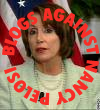To the Financial Times:
From Dr Jean-Pierre Lehmann.
Sir, With respect to the interesting correspondence on the Middle East, while there are many disagreements, I think all would agree that (a) the roots of the crisis go quite far back into history, and that (b) the interventions and impositions by the "west", both Europe and the US, in the Middle East have been almost invariably negative, both in their motivations and in their consequences.
While we (rightly) urge the Japanese to apologise to the Chinese, Koreans and other victims of the Pacific war and Japanese imperialism, the west owes profound apologies to Iran, the Iranians and the Arab people and societies of the Middle East. Specifically, while the Bush administration sermonises about freedom and democracy to Iran, should it not, at the very least, acknowledge that democracy in Iran was aborted by the UK and the US in 1953 with the overthrow of Mohammad Mossadegh.
The US-UK then imposed and strongly supported the dictatorial monarchical rule of Mohammad Reza Pahlavi as shah of Iran until he was finally overthrown by the Iranian people in 1979. Whether from the viewpoint of human rights, the post-1979 Islamic regime is better or worse than that of the shah is somewhat of a moot point.
What is important is that the current regime was chosen by the Iranian people and ultimately it is up to the Iranian people whether it wants to maintain it or not.
This is not to deny that Iran is somewhat of a problem. But surely the first step would be for the US and the UK to accept responsibility for all the political turbulence they caused in Iran in the previous century, proffer profound apologies, preferably with some important compensation, especially to all the families with members who died or were tortured by Savak, the shah's notoriously brutal secret police.
The Mossadegh affair is emphatically not water under the bridge. It is one example out of so many in this tragic region where history lives on (as it does between Japan and China and Korea) and determines the present and the future, because the past has not been properly addressed.
Ideally, Mr Blair and Mr Bush should go to Tehran, ask the Iranian people for forgiveness, and then, as they say, take it from there.
There are many other cases for the west to seek forgiveness in the region, but the Mossadegh issue has the advantage of being quite clear-cut and could go a long way to providing a solution for the current Iraniancrisis. This will be infinitely more effective than sanctions, let alone warfare.
Jean-Pierre Lehmann,
Professor of International Political Economy,
Founding Director,
The Evian Group,
1001-Lausanne,
Switzerland
"The Mossadegh issue has the advantage of being quite clear-cut and could go a long way to providing a solution for the current Iraniancrisis."
Do you think the good doctor has a clue? Being that his area of expertise is: "socio-economic and business dynamics of East Asia, the impact of globalisation on developing countries and the government - business interface, especially in respect to the global trade and investment policy process," that perhaps he smells business opportunities?
Once Bush and Blair take Dr. Lehmann's advice, perhaps afterward Ahmadinejad can apologize for Iran having taken Americans hostage; supporting Hezbollah and Hamas; supplying bodies and arms to cross over into Iraq, Lebanon and elsewhere; lying about it's actual intentions with "peaceful" nukes; for calling upon the Muslim world to unite and take on the West; for it's detest and activities against Israel; for leading the easily duped UN on and for being all-around meanies to us.






















